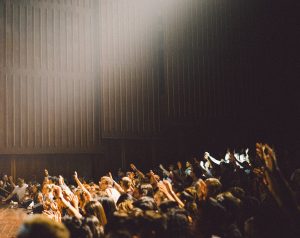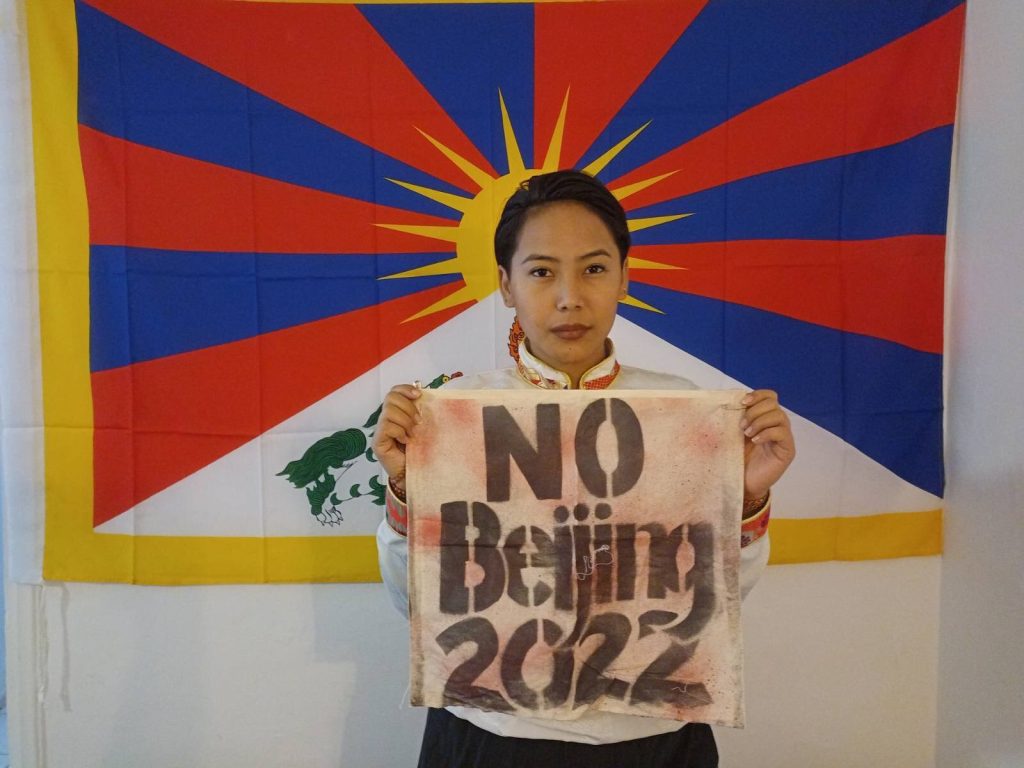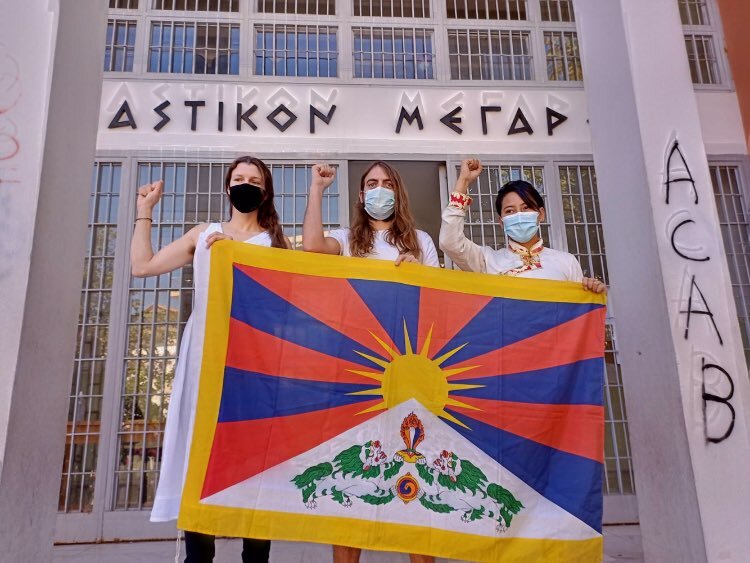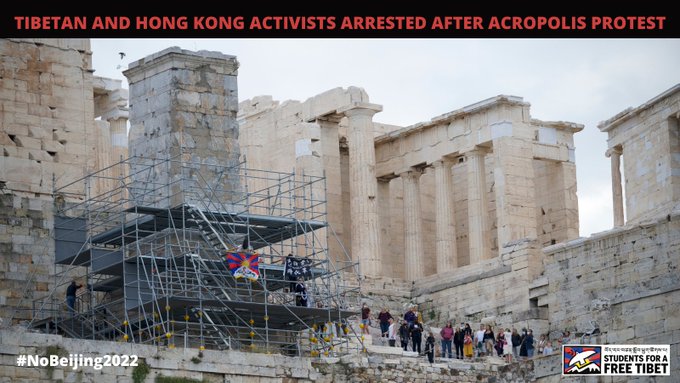2 Mar 2023 | Afghanistan, Burma, China, Hungary, News, Poland, Russia, United Kingdom, United States

Academic freedom is under attack. Photo: Edwin Andrade
Students should be encouraged to challenge ideas and question the world around them. Higher education is meant to teach us how to think freely, and for ourselves. Unsettling new data published by the Academic Freedom Index proves that this freedom is under threat. The report finds that academic freedom is in decline for over 50 percent of the world’s population and that many people on campuses worldwide have significantly less freedom today than they did ten years ago. In the past decade, academic freedom has improved in only a handful of countries, affecting just 0.7% of the world’s population. The most populous of these countries is Uzbekistan, a closed autocracy in which universities and scholars still face severe limitations, such as the government’s control over contacts between universities or scholars and foreign entities.
AFI’s data signals a decline across all regions and all region types. Our own ranking, the recently published Index Index, a project that uses innovative machine learning techniques to map the free expression landscape across the globe, shows just how this plays out on a country-by-country basis. Some obvious patterns can be drawn. Dwindling academic freedom clearly correlates to the deterioration of democracy in countries such as Poland, Hungary, Russia and Belarus. Political developments, including military coups in countries such as Myanmar and Afghanistan, have coincided with severe declines in academic freedom. In December 2022, the latter saw a ban by the Taliban on women and girls attending universities, a ruling that illustrates how academic freedom extends beyond what is taught on campuses and delineates one’s freedom to simply exist within academic spaces.
That said, the data shows that declines in academic freedom worldwide have occurred in different political settings and do not always follow the same pattern. Liberal democracies such as the United States of America and the United Kingdom are among the countries under which freedom is proven to be under threat. The AFI attributes this to ‘differences between individual and institutional dimensions of academic freedom’. This demarcates the difference between the freedom of an individual to teach, research and communicate freely and an institution’s autonomy and freedom to operate without government regulation. The AFI report gives a number of examples showing how disaggregation has occurred.
China, for instance, has witnessed a decrease in institutional academic freedom since 2010, when the State Council launched a ten-year strategy for education reform. Chinese universities have since remained in a subordinate position to the party-state, with universities that maintain leadership and management systems controlled by the university’s party committee. The party sets the boundaries of permissible research, exchange, and academics’ public speech. This system facilitated a serious decline in the freedoms enjoyed by academics under President Xi Jinping who has consolidated and centralised power, reestablished the party’s control over information, education and media, and made censorship in China a fact of life. Moreover, the draconian National Security Law enacted in Beijing in 2020 has exacerbated pressure on academic freedom.
The United States, however, presents an altogether different picture. Despite being lauded as a bastion of free expression, the US has seen a visible decline in academic freedom since 2021. This is because educational matters in the USA are largely regulated by individual states, which have increasingly used their authority to interfere in academic affairs. Several Republican-led states have adopted bills that ban the teaching of concepts related to “critical race theory” in universities. Conservative groups have lobbied state legislatures in attempts to withdraw funding from subjects such as gender, minority studies, and environmental science. Some institutions have introduced self-censoring measures following abortion bans to avoid persecution by state governments. In September 2022, Idaho’s flagship university curtailed individual academic freedom by blocking staff from discussing abortion or emergency contraception on campus.
Mexico’s government, led by Andrés Manuel López Obrador, has weakened institutional autonomy by regularly appointing university directors, often resulting in student protests. Attacks on (predominantly female) students, protests against these harassments, and a drug war fought on university campuses has also fuelled a decline in campus integrity, university safety and academic freedom.
The underwhelming glimpse of hope that emerges from this year’s findings (compared with 2022) is that the number of countries with improvements in academic freedom grew from two to five. Overall, the data signals a shift toward a less free world, in a worse state than it was 10 years ago. It’s a tough pill to swallow.
9 Feb 2023 | BannedByBeijing, China, Greece, News, Tibet
A few months ahead of the Beijing Winter Olympics, in October 2021, activists gathered at multiple locations in Athens to protest China’s hosting of the Games. In an alarming turn of events, Greek police arrested several of the activists. Some were arrested for unfurling banners, others for simply handing out fliers or, even just attending the “No Beijing 2022” events. Some were released without charge, others were acquitted after trial. For three activists, their trials were postponed until later in 2023.

Photo: Free Tibet
Before travelling to Greece, the activists – who were mostly Hong Kongers and Tibetans from Switzerland, the USA and Canada – tried to engage with International Olympics Committee (IOC) officials. They explained that hosting the Olympics in an authoritarian country that commits genocide was a violation of the Olympic Charter, which ensures that the games promote “a peaceful society concerned with the preservation of human dignity”. However, their arguments fell on deaf ears. Frances Hui, the director of “We The HongKongers”, told Index that IOC officials dismissed them, saying “you’re young, this is a complicated issue.”
Another activist, Zumretay Arkin, director of the World Uyghur Congress Women’s Committee, told Index that protesting at the Olympic flame lighting ceremony “was an opportunity for us to counter Beijing in Greece.”
While the activists knew there are always risks involved in protesting, they were not particularly worried. The most common tactic used to silence dissidents abroad – threatening the safety of loved ones – could not work as most activists involved had no direct family left in their homelands. Tsela Zoksang, a Students for Free Tibet member, told Index: “I have the privilege to raise my voice up against the CCP, unlike many communities who remain under the brutal rule of the CCP, and so I think I have a duty to amplify their voices and their stories.” Greece’s position as a member of the EU also reassured the protesters. According to Pema Doma, one of the activists and Executive Director at Students for a Free Tibet, they believed it “very unlikely that a country of the EU would act on orders of the Chinese government”. These beliefs were unfortunately misplaced.

Fern MacDougal, Jason Leith and Chemi Lhamo outside the Greek jail after their action. Photo: Free Tibet
CCP involvement
On 18 October, activists congregated outside the flame lighting ceremony. The activists planned to stand outside the security cordon and hand out flyers to journalists as they entered the Temple of Hera.
The activists were first approached by a Greek police officer curious about their activity but were left undisturbed. This soon changed. According to four activists that Index spoke to, the Greek officer spoke to an individual who identified themself as and was dressed in the uniform of, a member from the Chinese Embassy. The Greek officer insisted that “They’re just sitting there, I don’t see why they shouldn’t be allowed to sit there”. According to the activists’ retelling, this was met with the firm instruction to “make them leave. Tell them they can’t stay here”. They were moved from the entrance car park to a public pavement.
The activists had spotted other plain-clothed Asian men earlier taking photos of them. These same men approached the Greek police, and after a short discussion the activists were detained by Greek police officers. They were arrested without being informed of their rights and taken in unmarked cars to Pyrgos Police Station.
The Greek police possess broad powers to arrest activists for unsanctioned actions. Avgoustinos Zenakos, an investigative journalist from the Manifold Files, told Index: “The Greek police interpret these laws in their favour…This means whether it is abused or used in an honest way depends on the culture of the police rather than the letter of the individual law.” During an official visit to Greece, the UN Working Group on Arbitrary Detention reported that they received “credible information involving non-nationals in pre-trial detention who were detained exclusively on the basis of police testimony, including when there was other evidence that did not support the guilt of the persons involved.”
The protesters believe that the decision to arrest them was not made by the police alone. Doma told Index: “We knew right from the beginning it was the Chinese Embassy staff directing the Greek police quite directly, quite closely, you know, telling them exactly what to tell us”.
The next day, another group of activists were detained after holding a press conference to discuss the CCP’s human rights abuses to members of the media. The event was monitored by unknown individuals, some of whom attempted to stare down and harass the activists. When some of the activists confronted the individuals and asked them where they were from they laughed before replying, “We’re from China”. Tsering Gonpa, a Tibetan Youth Association of Europe activist, and Tenzin Yangzom, Grassroots Director at Students for a Free Tibet, climbed into a taxi together after the event and immediately heard sirens. Their passports were confiscated and they were escorted to the Athens police station.
“We were extremely shocked by the CCP’s influence and leverage in democratic Greece. We knew the situation was bad, but we certainly didn’t expect this level of transnational repression,” Yangzom told Index.
According to Zenakos, to find criticism of Greece’s relationship with China, including Chinese state ownership of key Greek assets and Greece’s involvement in key initiatives such as the 16+1 grouping of countries and China’s “One Belt, One Road” strategy, “you would have to dig deep.” These all raise questions as to whether increasing economic entanglement is leading Greece to become overprotective of its relationship with China. For instance, in 2016 Athens pushed for an EU statement on the South China Sea to be amended to remove criticism of Beijing and a year later it vetoed an EU statement at the UN Human Rights Council condemning human rights abuses in China. According to media reporting, this was the first time the EU didn’t make a statement of this nature at the council.
Mistreatment in the police stations
On 17 October 2021, Tesla Zoksang and Joey Siu, and one other anonymous activist, planned to install a banner onto the outer-walls of the Acropolis. Within about two minutes of ascending, a security guard approached and cut down the banner. The activists remained perched on the scaffolding watching police cars arrive before they were escorted down. Greek barrister Alexis Anagnostakis, who represented the activists, told Index that “the activists’ removal from the protest site, their arrest, and their remand in police custody was a disproportionate interference with their rights for freedom of expression and assembly, as is their criminal prosecution.” Anagnostakis was also surprised by the escalation “since similar protests on the Acropolis reportedly have never before been prosecuted.”

According to Tsela Zoksang, at the police station during an interrogation, one activist who wished to remain anonymous, was told by Greek officials that a representative from the US embassy was there to see them. However, the representative later allegedly admitted to being from an unspecified Greek agency. With assistance from the non-profit Vouliwatch, Index submitted an FOI request to the Greek police, attempting to verify these claims but were denied the disclosure on the basis that Index does not have “specific legitimate interest”. Index has lodged an appeal.
Other detained activists were not informed of their rights or what crime they were alleged to have committed. When the activists detained outside of the press conference asked why they were being detained an officer told them “to be completely honest with you, I don’t know why we’re taking you with us but I got orders from the higher ups”.
They were asked to sign documents without an English translation. After refusing, Zoksang reported that the officers “began getting very angry and frustrated. They were saying, ‘You are disobeying me, you are disobeying the law.’ I said, ‘No, but I can’t sign something if I don’t know what it says’”. They were told they would be punished for not signing documents and giving their fingerprints but at the time of going to press, nothing has yet come of this. The activists were also asked a series of seemingly irrelevant questions such as their parents’ names. Given the potential involvement or presence of CCP-affiliated actors in their detention, they feared this information would be shared with the Chinese authorities, potentially imperilling their ability to travel and the safety of any family members in CCP-jurisdiction.
Every Tibetan is an activist
Chemi Lhamo, a Tibetan activist, explained to Index: “Every Tibetan that was born after 1959 is born an activist … because your existence is by default political in nature when you are born stateless.”
While the Games still went ahead, the campaign nonetheless left its mark. As Lhamo told Index, “There was a moment of time, in the world, in the busy world that we are in, when people stopped for a moment to ask, ‘what’s happening? What’s happening within Tibet?’”
The diplomatic boycotts were also found to have had a major impact on viewership. Yangzom told Index that the oppression of the activists was “vindication that the work that we’re doing is making an impact and we must be doing something right – so we mustn’t give up and keep raising our voices on behalf of Tibetans inside Tibet and all those oppressed.”
All charges against the Acropolis actors were dropped on 17 November 2022. Michael Polak, their British ‘Justice Abroad’ barrister, stated “It is hoped that the acquittals today will send a strong message that legitimate peaceful protest and assembly, of the type banned totally in China and Hong Kong, will be allowed even when it hurts the fragile sensibilities of the Beijing and Hong Kong regimes.”
Yet, the charges against others for attempting to “pollute, damage and distort” the historical monument of Olympia, punishable by up to five years in prison, still stand. The original trial against Lhamo, Jason Leith and Fern MacDougal was delayed before being again pushed back to November 2023. MacDougal told Index she worries “the delay in trial has the effect of both avoiding public discussion of the human rights violations that we took action based on and of obscuring the meaning of our action.”
Lhamo also noted that “it is another year of waiting, and having a pending court case has its own consequences which seem to unfold in various ways for us.” She elaborated to Index that she is “lucky” to have continued support from the lawyers and organisations, but the charge is a significant barrier for them to engage in more direct actions and affects their ability to travel. Yet she emphasised: “Don’t feel anxious for us [about the court case] … Let’s channel that energy of solidarity and support to the folks we are actually working for, those inside Tibet.”
25 Jan 2023 | Australia, Austria, Bahrain, Belarus, Belgium, Botswana, Burma, China, Cuba, Czech Republic, Denmark, Equatorial Guinea, Eritrea, Estonia, Ethiopia, Finland, Germany, Greece, Index Index, Ireland, Laos, Latvia, Lithuania, Moldova, Netherlands, News, Nicaragua, North Korea, Norway, Portugal, Romania, Russia, Saudi Arabia, South Africa, South Sudan, Swaziland, Switzerland, Syria, Turkmenistan, United Arab Emirates, United States, Yemen
A major new global ranking index tracking the state of free expression published today (Wednesday, 25 January) by Index on Censorship sees the UK ranked as only “partially open” in every key area measured.
In the overall rankings, the UK fell below countries including Australia, Israel, Costa Rica, Chile, Jamaica and Japan. European neighbours such as Austria, Belgium, France, Germany and Denmark also all rank higher than the UK.
The Index Index, developed by Index on Censorship and experts in machine learning and journalism at Liverpool John Moores University (LJMU), uses innovative machine learning techniques to map the free expression landscape across the globe, giving a country-by-country view of the state of free expression across academic, digital and media/press freedoms.
Key findings include:
-
The countries with the highest ranking (“open”) on the overall Index are clustered around western Europe and Australasia – Australia, Austria, Belgium, Costa Rica, Denmark, Estonia, Finland, Germany, Ireland, Latvia, Lithuania, Netherlands, New Zealand, Norway, Portugal, Sweden and Switzerland.
-
The UK and USA join countries such as Botswana, Czechia, Greece, Moldova, Panama, Romania, South Africa and Tunisia ranked as “partially open”.
-
The poorest performing countries across all metrics, ranked as “closed”, are Bahrain, Belarus, Burma/Myanmar, China, Cuba, Equatorial Guinea, Eritrea, Eswatini, Laos, Nicaragua, North Korea, Saudi Arabia, South Sudan, Syria, Turkmenistan, United Arab Emirates and Yemen.
-
Countries such as China, Russia, Saudi Arabia and United Arab Emirates performed poorly in the Index Index but are embedded in key international mechanisms including G20 and the UN Security Council.
Ruth Anderson, Index on Censorship CEO, said:
“The launch of the new Index Index is a landmark moment in how we track freedom of expression in key areas across the world. Index on Censorship and the team at Liverpool John Moores University have developed a rankings system that provides a unique insight into the freedom of expression landscape in every country for which data is available.
“The findings of the pilot project are illuminating, surprising and concerning in equal measure. The United Kingdom ranking may well raise some eyebrows, though is not entirely unexpected. Index on Censorship’s recent work on issues as diverse as Chinese Communist Party influence in the art world through to the chilling effect of the UK Government’s Online Safety Bill all point to backward steps for a country that has long viewed itself as a bastion of freedom of expression.
“On a global scale, the Index Index shines a light once again on those countries such as China, Russia, Saudi Arabia and United Arab Emirates with considerable influence on international bodies and mechanisms – but with barely any protections for freedom of expression across the digital, academic and media spheres.”
Nik Williams, Index on Censorship policy and campaigns officer, said:
“With global threats to free expression growing, developing an accurate country-by-country view of threats to academic, digital and media freedom is the first necessary step towards identifying what needs to change. With gaps in current data sets, it is hoped that future ‘Index Index’ rankings will have further country-level data that can be verified and shared with partners and policy-makers.
“As the ‘Index Index’ grows and develops beyond this pilot year, it will not only map threats to free expression but also where we need to focus our efforts to ensure that academics, artists, writers, journalists, campaigners and civil society do not suffer in silence.”
Steve Harrison, LJMU senior lecturer in journalism, said:
“Journalists need credible and authoritative sources of information to counter the glut of dis-information and downright untruths which we’re being bombarded with these days. The Index Index is one such source, and LJMU is proud to have played our part in developing it.
“We hope it becomes a useful tool for journalists investigating censorship, as well as a learning resource for students. Journalism has been defined as providing information someone, somewhere wants suppressed – the Index Index goes some way to living up to that definition.”
6 Jan 2023 | Afghanistan, Belarus, China, Iran, Mexico, Russia, Ruth's blog, South Sudan, Ukraine, United Kingdom, United States
Happy New Year!
I think we can all agree, regardless of where we live, that 2022 was a tumultuous year. There was seemingly a new crisis every day. Totalitarian regimes moving against their populations became increasingly normal, from Iran to China. The ongoing rise (and occasional fall) of populist politics. The Russian invasion of Ukraine. The rise of energy and food costs and the impact on some of the world’s poorest. The attempted murder of Sir Salman Rushdie. And to be parochial just for a moment, complete political insanity in the UK.
I really hoped that 2023 would mark the end, or at least a pause, of that wonderful Chinese saying – we live in interesting times. Even for just a few months I had dreamed of a period of calm, of quiet, of dullness. Or at least a few weeks so we could all catch up on life and enjoy the world we live in, rather than being anxious at turning on the news.
It is only the sixth day of the year and my wish for calm has already been broken. This week we have seen political dysfunction in the USA; Belarus has commenced trials against many of their high-profile detainees who were arrested during the demonstrations against Lukashenka; there have been deadly riots in Mexico and the news is filled with the gloom of Covid (and China’s censoring of news on it), flu and inflation. It’s day six…
We knew that this year would see significant world events, as the impact of the war in Ukraine continues to be felt. But China is also likely to seek to exploit this global diplomatic distraction for their own nefarious wants. And of course the protests in Iran, Afghanistan, South Sudan and Mexico continue apace – even as they evolve.
Index will remain busy in the months ahead as we seek to shine a spotlight on the actions of totalitarian regimes and make sure that you hear from the people behind the headlines. From the women now banned from attending university in Afghanistan, from the democracy activists imprisoned in Belarus, from the Rohingya mothers held in camps as they flee Myanmar, from the journalists who fight to be heard and stay alive in Mexico. Index will keep providing a platform for the persecuted, so they can tell their stories and you can hear them.
Happy New Year in these interesting times.




